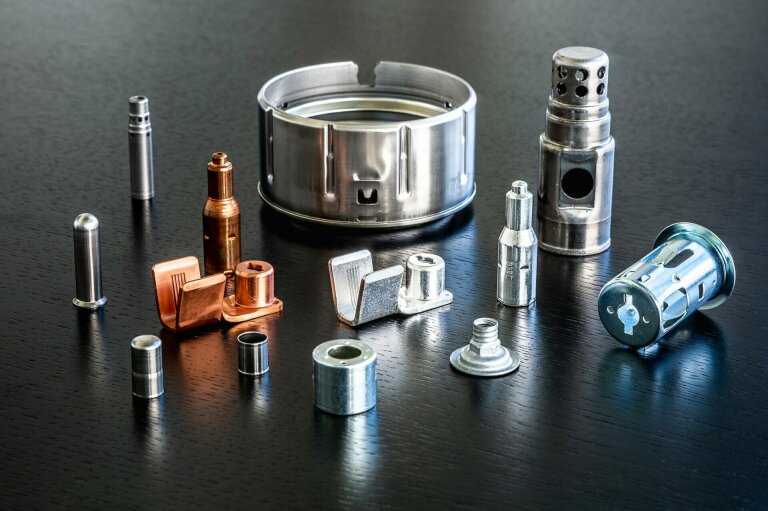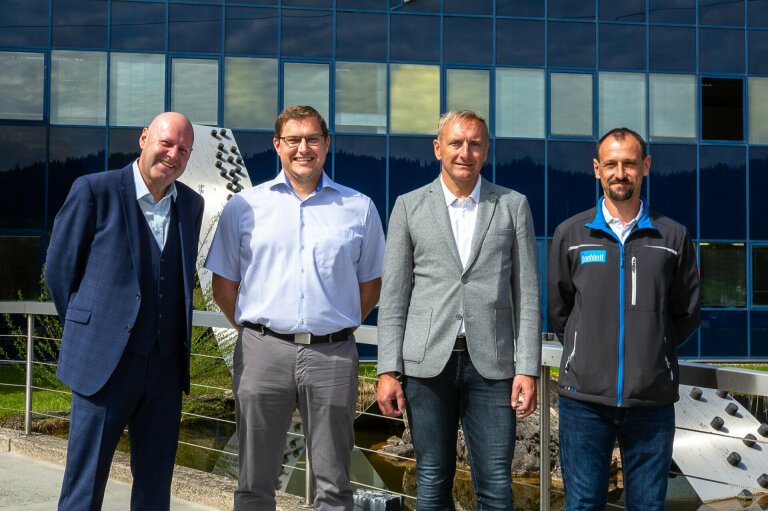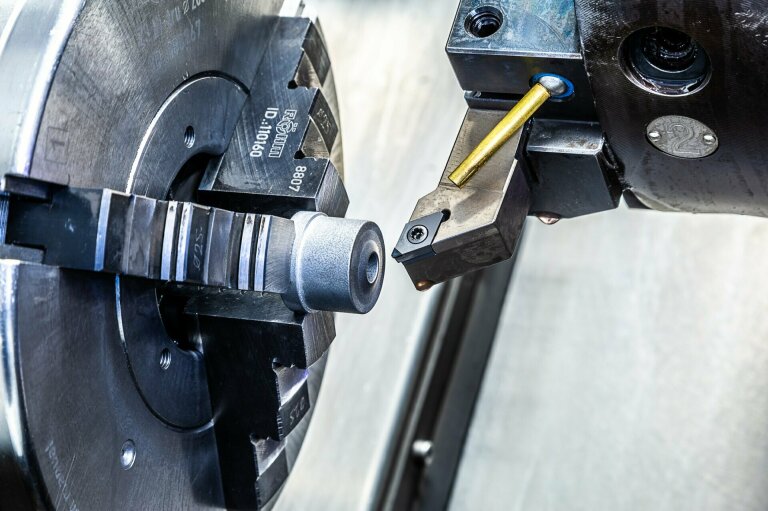News
MARK Metallwarenfabrik specializes in the deep drawing of high-precision metal parts in large quantities. In order to have the entire process under control, the company manufactures the required carbide deep-drawing tools itself. But only the optimal combination of the carbide blank and the cutting material for its machining results in a high-precision, durable deep-drawing tool. MARK therefore relies on Boehlerit and TIROTOOL. The result is a true technology partnership.
On November 20, 1920, Rudolf Mark Senior founded the shoe eyelet factory Rudolf Mark & Sons in Spital am Pyhrn (Upper Austria). This laid the foundation for today's MARK Metallwarenfabrik, a family business that is currently in the transition from the third to the fourth generation. "The first two generations relied exclusively on supplier parts for shoes," says CEO Rudolf Mark, grandson of the company founder. "For example, we invented the ski boot buckle in 1962. In 1964, at the Olympic Winter Games in Innsbruck, all medal winners wore shoes with our buckles.” But in the 1970s, the big turning point began, the domestic shoe industry was sold or outsourced its production to low-wage countries. The Upper Austrians were suddenly cut off from their main delivery segment. "There was an acute need for action," says Rudolf Mark, who decided to use the deep-drawing know-how available in his company for other products. His approach was as simple as it was ingenious: "I was looking for components that looked similar to our shoe eyelets. I found what I was looking for in the automotive industry with clutch lining rivets. Then I said to myself: This has to become my market now.” Getting started was difficult, but with presentable technology, youthful vigor, ambition and the necessary perseverance, Rudolf Mark managed to get into the automotive supply business. After that it went steadily uphill. Today, MARK supplies around 90% of its diverse products to the automotive industry, the rest goes to medical technology and other areas. Around 550 employees work in the entire MARK Group – at the headquarters in Spital am Pyhrn and in one production branch each in Slovenia and China.
New markets - new challenges
MARK's core competence, deep drawing, is considered a technical challenge. It is a very productive process that allows the production of very large quantities in a short time. The company usually produces complex, smaller metal parts in several complex deep-drawing steps with the highest precision. These are mostly made of steel, but also other metals up to, for example, Inconel, and have a diameter of between approx. 2 and 80 mm and a material thickness of between 0.1 and 2.5 mm. Rudolf Mark: "We manufacture up to 300 million pieces of some components per year, of course from the first to the last part with the tightest tolerances." In order to master this challenge, MARK operates its own tool shop, in which all deep-drawing tools are developed, designed and manufactured. Without a doubt, this is one of the main reasons for the company's success in the market, as this is where MARK's true know-how lies. "The optimal deep-drawing tool and our employees are the keys to precise and stable production," Rudolf Mark puts it in a nutshell. "Precise manufacturing and wear resistance of the tools are among the most important criteria, as confirmed by Johann-Erwin Retschitzegger, Head of Mechanical Production/Technology at MARK: "Our deep-drawing tools manage up to 1 million strokes."
Diamond cuts hard metal
To achieve this, MARK needs strong partners. Consisting of up to 800 individual parts, the hard metal deep-drawing tools are elaborately shaped so that even complex geometries can be implemented. However, it is precisely this complexity that often rules out the grinding process, since not all areas can be reached with it. The solution to the problem came from machining the hard metal. Here MARK found a competent partner in TIROTOOL. "Thanks to innovative manufacturing technology, our diamond tools enable drilling, turning, milling and thread cutting of even the hardest materials," says Ing. Manfred Schwaiger, Sales and Marketing Manager at TIROTOOL, Innsbruck. MARK approached TIROTOOL because the existing process for machining carbide had reached its limits. After a thorough examination of the specific requirements, the Tyroleans were able to score points thanks to their comprehensive application know-how and demonstrated the stable and precise use of their tools. The requirements are high and demanding, after all the tolerances are in the low µm range. "Achieving this requires enormous effort and the most modern testing methods," explains Rudolf Mark. Not except
Individually prefabricated blanks
"However, the best tool can only fully exploit its advantages if the interaction with the carbide is perfectly matched," points out Johann-Erwin Retschitzegger. It's good that he can rely on Boehlerit as a supplier for hard metals, because the experts from Kapfenberg (Styria) have been cooperating with TIROTOOL in this segment for a long time. "We supply MARK with customer-specifically preformed carbide blanks with an individually defined allowance," says Martin Fellner, Technical Advisor and Sales of Semi-Finished Products and Wear Protection at Boehlerit. These so-called form blanks are processed further or finished by MARK with diamond tools. Boehlerit can respond very precisely to customer requirements, for example the actual carbide grade is adapted to the workpiece material - an indispensable factor when it comes to achieving a long service life. Another advantage that Boehlerit customers can rely on is the consistently high quality of the carbide over many years. Thanks to the close-contour shaping of the blanks, the effort for MARK is reduced as much as possible, which significantly accelerates the machining process, makes it flexible and economical. The carbide from Boehlerit, the tools from TiroTool and the tool shop from MARK thus form an optimally geared system. One thing is clear: the intensive examination of the processes, the ongoing willingness to engage in dialog with everyone involved and the will to constantly improve are the success factors of all three companies - with the result of a real technology partnership. The only question that remains is: how did the dog get into the MARK company logo? "It's a reminiscence of the dachshund of my grandfather, the company founder," says Rudolf Mark with a smile, "according to tradition, he could count. Reason enough for a place of honor in the logo.”



